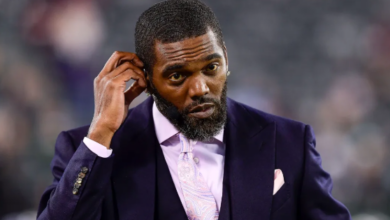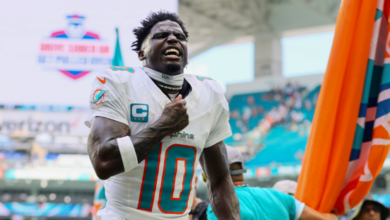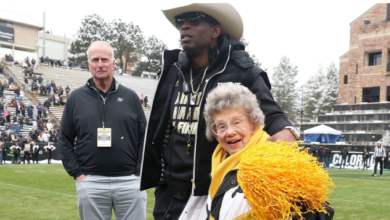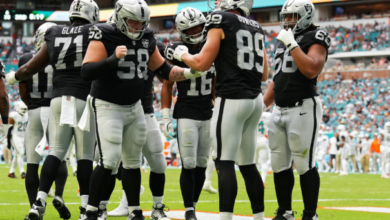Missing out on playing in the World Cup is ‘worth sacrificing for one strand of Iranian women’s hair’

CNN
—
The World Cup in Qatar is practically a home tournament for Iran, only the narrow Persian Gulf separates the two nations.
But as they line up for their opening match against England on November 21, some of the Iranian players might feel rather uncomfortable wearing the tricolor flag and representing their country.
That’s assuming those players are picked for the team, and assuming that the team itself even makes it to Qatar; over the next few weeks, there is considerable uncertainty for any sports organization that represents The Islamic Republic of Iran.
Ever since the death of the 22-year-old woman Mahsa Amini in September, cities across Iran have been plunged into chaos and violence.
Amini died after she had been detained by the morality police for allegedly incorrectly wearing her compulsory hijab, and her fate sparked a female uprising which has swept the country.
Many women have publicly tossed aside their restrictive head dresses, and their simmering fury shows no sign of abating.
It’s the most serious challenge to the stability of the theocratic regime and it’s arguably the most significant one since it ascended to power in 1979.
Some have compared what’s happening in Iran to the Berlin Wall’s fall, and as the defiant chants of ‘Death to the Dictator’ have rung out on street corners from Tehran to Shiraz – the goal of the movement is clear, to topple Iran’s Supreme Leader, Ayatollah Seyyed Ali Khamenei, and effectively bring an end to the Islamic Republic.

In response, the government crackdown has been brutal.
The Islamic Republic’s Revolutionary Guard (IRGC) have arrested thousands of protesters all while silencing their voices by shutting down the internet.
And yet, despite the internet blackouts, more and more videos are emerging of protesters being chased, shot, beaten, or violently thrown to the ground.
CNN has been unable to verify an accurate list of casualties, but dozens of young people are believed to have been killed.
In recent years, some of the country’s top athletes have staked out their own position against the government.
Following the execution of the wrestler Navid Afkari, who was found guilty of killing a security guard during the previous uprising in 2018 and hanged in Shiraz two years later, a group of wrestlers, karatekas, judokas and football players aligned to form the United for Navid campaign.
Afkari’s family and supporters have always argued that he was innocent, and that his trial was a sham. Now, many of the country’s top athletes, who are revered in Iran, have unofficially joined forces with protesters fighting for their rights on the streets.
Writing on his social media account during Iran’s preparations for the upcoming World Cup, 27-year-old forward Sardar Azmoun said, “Because of national team regulations, we couldn’t say anything until the training was finished.”
He indicated that his public stance in opposition to the government could cost him a place at the World Cup, but he says the loss of a professional goal would be for a good cause.
“That is worth sacrificing for one strand of Iranian women’s hair,” Azmoun wrote in an Instagram story, “Shame on you who kill people so easily. Long live Iranian women.”
After speaking out, many were skeptical that Azmoun would be allowed to represent Iran on the pitch, so it was a surprise when he played for Iran in an international friendly match against African champion Senegal, coming on as a substitute and headed home the equalizing goal. Notably, he did not celebrate.

The former wrestler Sardar Pashaei, the Executive Manager of the United for Navid campaign, says he was forced to flee Iran to the United States in 2008.
In an interview with CNN, his voice cracked with emotion as he spoke with pride of his sister, a human rights activist, who he says was detained for joining the protests.
Pashaei believes that the mood in the national football squad is split between pro-regime players who want to play in Qatar, and others who can no longer comfortably play under the flag of a regime which has so ruthlessly oppressed its own people.
“Many people do not consider this team as their national team,” explained Pashaei. “They consider it to be the Islamic Republic team, it represents the government, not the people. And a lot of athletes think the same.”
He added that players who are sympathetic to the regime are trying to argue that sport and politics should be kept at arms-length, but Pashaei rebukes that sentiment, saying, “We know that in Iran, everything is political.”
On behalf of the United for Navid campaign, Pashaei wrote to football’s world governing body, FIFA, asking that they suspend Iran from the World Cup.

In his letter dated September 29, Pashaei reminded FIFA of Sahar Khodayari, a young Iranian woman known as ‘Blue Girl,’ who died in 2019 after being denied entry to a football stadium to watch her favorite team F.C. Esteghlal play.
She was arrested and sentenced to prison, but set herself on fire outside the court and later died from her injuries.
Pashaei reminded FIFA that they had suspended all of Russia’s international and club teams from their competitions “until further notice” in February for invading Ukraine and asked that similar sanctions be applied to Iran.
“Iran is brutally killing and torturing protestors and is oppressing women by criminalizing watching football or showing a few strands of hair. FIFA’s silence is an endorsement of these human rights violations.”
Within 24 hours, another human rights group – ‘Open Stadiums’ – also urged FIFA to suspend Iran, stating, “The Iranian FA is not only an accomplice of the crimes of the regime, it is a direct threat to the security of female fans in Iran and wherever our national team plays in the world.”
So far, FIFA has remained silent, and they have not responded to CNN’s request for comment.
Several Iranian football players have discreetly voiced their sympathies with the protesters, changing their social media avatars to black backgrounds or black outlines of Iran’s geographical borders.
Others have been much more outspoken; speaking after the recent club match against Tractor S.C., Persepolis F.C. midfielder Soroush Rafiei addressed the ongoing protests and scrutiny on footballers saying that he and his teammates don’t have the energy or interest to talk or even play football.
Addressing the people’s fight for women’s rights, Rafiei addressed the country’s strict Islamic code saying, “Your wife wears hijab and we respect that, but who are you to tell me how my wife should dress?”
In light of their social media commentary, it is believed that the former national team players, Hamidreza Ali Asgari, Kaveh Rezaei and Hossein Mahini have either been arrested or detained for questioning; CNN has been unable to verify the reports coming out of Iran.

The United for Navid campaign has told CNN that Iran’s record international goal scorer, Ali Daei has had his passport confiscated, and the former national team captain Ali Karimi has so irritated the government with his vocal support of the protesters to his millions of Instagram followers, that he has been accused of fomenting sedition.
Karimi resides in Dubai, but local reports indicated that his home in Iran had been seized by the government.
It’s not just football players who are standing up to the regime, many other athletes have decided that they can no longer represent their country in good conscience.
The handball player Sajjad Esteki, the women’s rugby captain Fereshteh Sarani, the fencer Mojtaba Abedini Shourmasti and Taekwondo’s Mahsa Sadeghi have all quit their national teams in protest.
The well-respected former wrestler Rasoul Khadem Azghadi has voiced his support of all the athletes who have taken action.
“At a time when the people are facing problems and protests, we should be happy that our national champions are standing with them,” Azghadi wrote on social media. “By doing so, they are taking the weight of the tensions off the shoulders of those people.”
Pashaei believes that the athletes who are speaking up have less to lose than the protesters who are facing bullets and batons in the streets.
As the uprising enters a third week the situation on the streets of Iran remains highly volatile.
In just a few weeks’ time, the World Cup will kick off, wih Iran scheduled to line up in Group B.
In addition to the opening match against England, Iran will also play Wales and then the United States, stirring memories of their thrilling 2-1 win against an old foe, ‘The Great Satan,’ at the 1998 World Cup in Lyon.
Whether the players agree with their governments or not, the teams on the field will likely represent diametrically opposing ideological views.
US government officials have condemned what they call the “appalling” crackdown on the protesters and Secretary of State Antony Blinken says that Iran, “Needs to end its use of violence against women for exercising what should be a fundamental freedom.”
When the two nations meet in Doha on November 29, a place in the knockout round could be at stake, though FIFA may find that the story isn’t strictly confined to what happens on the pitch.
Source link





